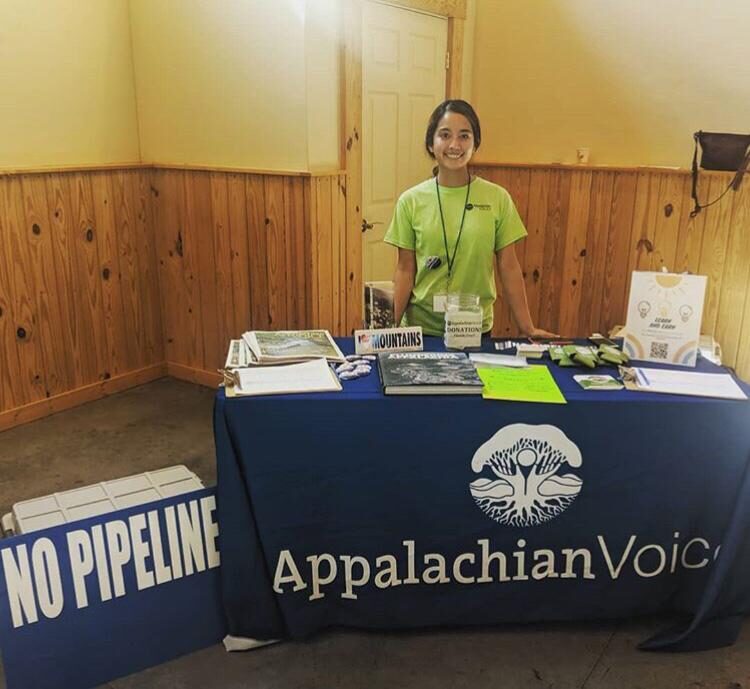Embracing Politics in Environmental Non-Profit Work
October 10, 2019
Saachi Das Kuwayama representing her organization, Appalachian Voices, at a solar energy symposium.
While at Appalachian Voices, I learned just how deeply embedded politics are in all types of environmental work. Meetings on topics from water testing to coal reclamation and pipeline advocacy always included in-depth discussions about the politics of relevant stakeholders and political implications of proposed actions. For instance, discussions about the Mountain Valley and Atlantic Coast Pipelines typically involved conversations about how allies in the General Assembly would react if Appalachian Voices were to take a more active role in anti-pipeline advocacy. I quickly realized how important these conversations were, and how overlooking such dynamics could cause more harm than good.
Political considerations (maintaining politically sensitive relationships, incorporating stakeholder politics into decision-making, etc.) are particularly important in environmental justice work. Open discussions about the influence of politics and power on environmental justice work can help determine what is feasible and most effective. Such discussions can help identify political allies to rely on in advancing the cause. Having observed several policy meetings of the Virginia Environmental Justice Collaborative (of which Appalachian Voices is a member), I saw how important it is to build relationships with legislators and elected officials. Many of the Collaborative’s discussions on environmental justice policy revolved around building legitimacy to ensure that future work by the Collaborative would be taken seriously by legislators.
These open conversations do not necessarily rule out collaboration with individuals or groups across the aisle. In fact, during my time at Appalachian Voices, I was constantly surprised by the willingness of folks across the political spectrum to listen, support, and contribute. I was also challenged to put aside my own assumptions; as I spoke to more folks with differing political stances, I began to realize that people’s views on environmental issues are much more complex and nuanced than I expected. The Appalachian Voices staff has been listening to Virginian communities for decades, building relationships and leveraging their connections to advance environmental solutions with broad support.
Unfortunately, environmental organizations all too often attempt to decouple their environmental work from its political basis and implications. The reasoning behind such decoupling – preventing political motivation from interfering in scientifically sound work – is well-founded in theory but can actually cause harm in practice. For instance, in the case of abandoned mine reclamation, it would be simple to implement a reclamation process focused solely on improving landcover, however failing to consider stakeholders’ political, economic, and social stakes may harm communities by creating unusable land. There is a simple, albeit not-so-elegant, fix to this problem: encourage open dialogue with stakeholders and ensure that environmental work is cognizant of political realities.
About Saachi Das Kuwayama, MS

